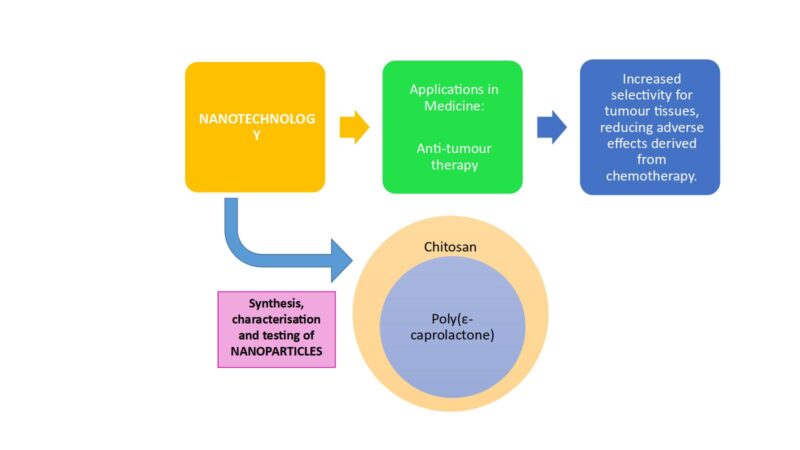
Nanotechnology is an increasingly important field today due to its wide variety of applications in many areas, including Medicine. One of its most recent applications is in anti-tumour therapy, with drugs that act on specific tissues. Nanoparticles are transport systems for therapeutic agents which aim to increase the efficacy of the drug and its tolerance in the human body. These agents also seek to minimize toxic effects, improving the way in which the drug binds to selected tissues, and its affinity for tumour tissues, thus avoiding the adverse effects produced by conventional chemotherapy.
In this research, nanoparticles of poly(ε-caprolactone), a very stable material compatible with the human body, were formulated. Their characteristics were assessed and several tests were carried out. They were coated with another polymer, chitosan, which also provides all the above advantages, in that it is highly selective for cancerous tissues due to the fact that it decays in their acidic environment and could be a very good alternative in anti-tumour therapy.
Keywords: Anti-tumour therapy, nanotechnology, nanoparticles, poly(ε-caprolactone), chitosan.
Directed by: José Luis Arias Mediano